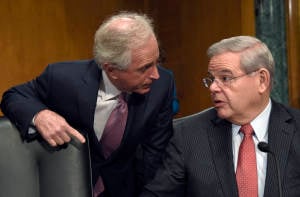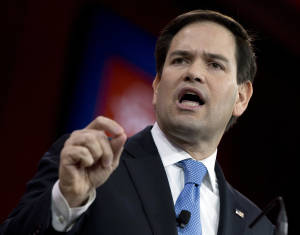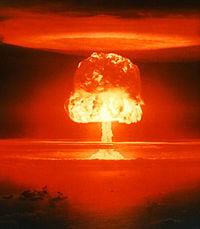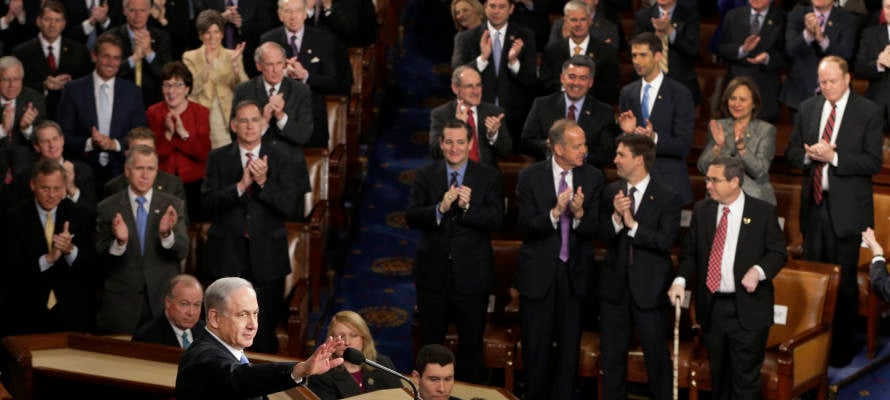The Iran nuclear deal President Obama has approved now faces a 60-day review in Congress. Will Congress also approve it? Obama has already said he would veto any opposition to the deal.
After the agreement was signed between the P5+1 Powers and the Islamic Republic, it will be sent to Congress for 60 days of review and scrutiny.
House and Senate leaders have already signaled that they think Obama made too many concessions and that they intend to fight it on the Floor.
However, lawmakers’ options are limited. They can cast a nonbinding vote of disapproval, but that will not scuttle the deal. Lawmakers can impose new sanctions on Iran or prevent the president from suspending existing ones, but Obama would likely veto such a bill.
In that case, Republican leaders would have to find enough support to override a presidential veto to stop Obama from fulfilling America’s side of the agreement, but the chances of gathering the required two thirds of the votes appears at this time implausible.
Israel is expected to launch a campaign among American lawmakers, and especially Democrats, in an attempt to persuade them to vote against the deal, their last chance at scuttling the deal they view is an existential threat.
House Speaker John Boehner (R-OH) accused Obama of abandoning his own objectives for the negotiations and called the agreement “unacceptable.”
“It’s going to hand a dangerous regime billions of dollars in sanctions relief while paving the way for a nuclear Iran,” he said according to the Washington Post. “If it’s as bad a deal as I think it is at this point, we’ll do everything we can to stop it.”
Senate Majority Leader Mitch McConnell (R-KY) said the deal “appears to fall well short of the goal we all thought was trying to be achieved, which was that Iran would not be a nuclear state.”
Democratic leaders, meanwhile, mostly offered pledges to closely review the deal rather than outright endorsements. Senate Minority Leader Harry Reid (D-NV) called the agreement “historic,” but avoided offering further comments on the issue.
“My staff hasn’t read it; I haven’t read it,” Reid told reporters. “Let’s find out what we have first.”
House Minority Leader Nancy Pelosi (D-CA) called the deal “the product of years of tough, bold and clear-eyed leadership” from Obama, but stopped short of a full endorsement. “Congress will closely review the details of this agreement,” she said.

Senate Foreign Relations Committee Chairman Sen. Bob Corker, (L), talks with the committee’s ranking member Sen. Robert Menendez. (AP/Susan Walsh)
Senator Robert Menendez (D-NJ) said in a statement the agreement “ultimately legitimizes Iran as a threshold-nuclear state” and “doesn’t end Iran’s nuclear program — it preserves it.”
Congressman Steve Israel (D-NY), the highest-ranking Jewish Democrat in the House, said he would “review every word, sentence and paragraph of the deal to ensure it satisfies my continued concerns.”
“Until then,” he said, “you can continue to count me in the ‘skeptical’ column.”
Senator Bob Corker (R-TN), chairman of the Senate Foreign Relations Committee, said that the deal amounted to “managed proliferation.”
“I would say the agreement has taken a downward trend,” he said.
Corker said the vote would probably be held in September, giving skeptics crucial weeks to marshal opposition.
Iran Deal Enters Presidential Race

Democratic presidential candidate Hillary Rodham Clinton. (AP/David Goldman)
The Iran nuclear deal sets up a campaign clash between Democratic presidential contender Hillary Rodham Clinton and Republicans vying for the White House.
Several leading Republican rivals stepped up Tuesday to denounce the agreement. Florida Senator Marco Rubio and Wisconsin Governor Scott Walker both said they’d rescind the deal if elected president.
Clinton, in contrast, has endorsed the agreement and said she’d be committed as president to seeing its terms honored.
However, in the 2008 Democratic presidential contest, she called Obama’s offer to meet Iran’s leader without preconditions “irresponsible” and “naive.”
Four years later, as secretary of state, Clinton helped begin the talks with Tehran, sending an adviser to secret meetings with the Iranians that led to the start of the international negotiations.
Republican presidential contender Jeb Bush calls the Iran nuclear deal “dangerous, deeply flawed and short sighted.”
He said the agreement merely consolidates the grip on power of “violent revolutionary clerics who rule Tehran with an iron fist,” and that the agreement is not diplomacy, but “appeasement.”
Republican presidential contender Chris Christie expressed hope that Congress will reject the Iran nuclear deal.

US Senator Marco Rubio. (AP/Carolyn Kaster)
The New Jersey governor stated the deal will lead to a nuclear Iran and Middle East, threatens Israel and the US, and “turns 70 years of nuclear policy on its head.”
Republican presidential rival Marco Rubio also turned thumbs down on the agreement, saying the US gave “concession after concession to a regime that has American blood on its hands, holds Americans hostage, and has consistently violated every agreement it ever signed.”
Christie says Obama’s team should have walked away from the talks. Instead, says the governor, Obama is “playing a dangerous game with our national security.”
Senator Marco Rubio predicted that Congress will reject the nuclear agreement with Iran. He said the deal “undermines our national security.”
Rubio said that failure to obtain congressional support would tell the Iranians and the world “that this is Barack Obama’s deal, not an agreement with lasting support from the United States.”
By: AP and United with Israel Staff

Sign the Petition to Stop a Nuclear Iran
The US Congress must ensure that sanctions against Iran remain in force until the nuclear threat is completely eliminated.
I strongly oppose easing sanctions before the nuclear threat from Iran has been eliminated. Allowing Iran to enrich uranium without being subject to 'anytime, anywhere' inspections is extremely dangerous and unacceptable. Iran's nuclear program must be stopped.
See our Privacy Policy